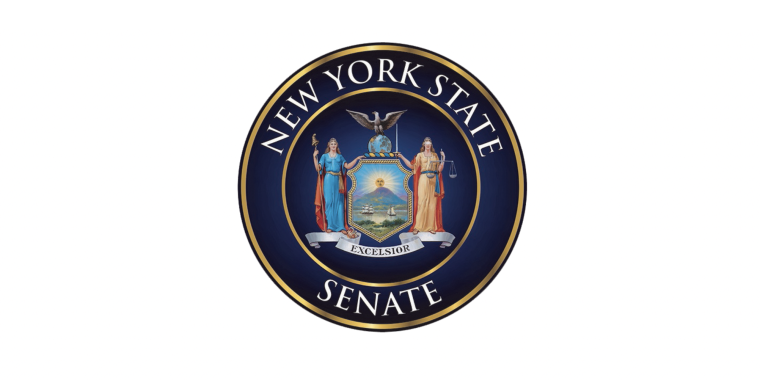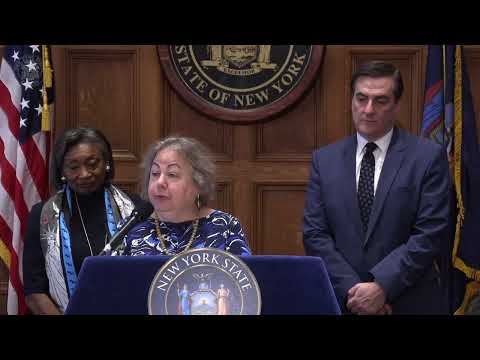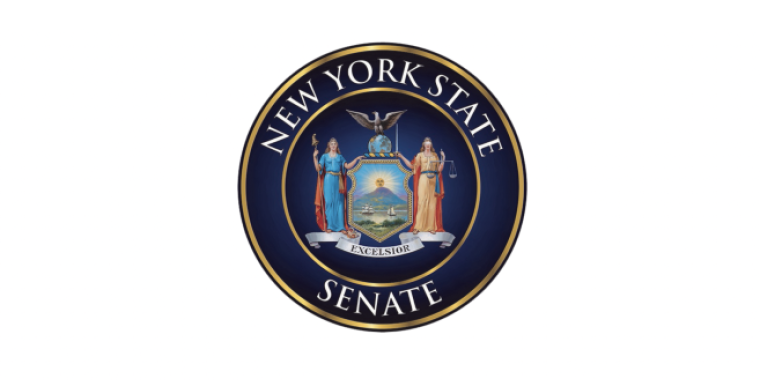
Testimony Before The Assembly Standing Committee On Environmental Conservation Regarding The New York State Returnable Container Act on March 21, 2003
Liz Krueger
July 12, 2010
Good morning. I am State Senator Liz Krueger and I represent the 26th Senate District, which includes the Upper East Side, East Midtown and Midtown areas of Manhattan.
I want to thank Assemblyman DiNapoli for providing me with this opportunity to testify today on the New York State Bottle Deposit Law. For twenty years the deposit law has been an environmental success, as is evidenced by traveling our cleaner roadways, and through a decreased demand for space at our landfills. The Department of Environmental Conservation has reported that since 1982 New Yorkers have a return rate of 75% which is more than 3,700,000 tons of glass, 850,000 tons of aluminum and 550,000 tons of plastic.
I believe that the legislature has an obligation to expand the current bottle bill for several reasons. There has been a drop off in redemption and our localities are desperate for increased support to continue their successful recycling programs. I am fully aware that there are several different legislative proposals to expand the bottle bill being moved through both houses of the legislature, including A.3922, sponsored by this Committee’s Chair, Assemblymember DiNapoli. I applaud your efforts, and know we are in agreement on our goals even though our proposals differ.
Today, I will focus my remarks on legislation that Assemblymember Pete Grannis and I have introduced that would both encourage more recycling and generate additional funds for the state and localities to be distributed by the Environmental Protection Fund. This legislation would amend the New York State Bottle Deposit Law is three distinctive ways.
First, our bill, S.384, would expand the universe of bottles, which would be subject to a deposit to include: non-carbonated flavored drinks and bottled waters. Very simply, the success that we have already experienced in cleaning up the environment should be sufficient reason to broaden the types of containers that this law would regulate.
Since the enactment of the original law in 1982, the market has changed dramatically and non-carbonated beverages; iced tea, coffee, and bottled water have gained a larger share of the beverage market. According to the Container Recycling Institute one out of every five containers is not covered by the bottle bill. With no visual difference between a beer bottle that has been discarded and a water bottle that has been discarded, there is no substantive basis for exempting these containers from the deposit requirements. Powdered or frozen concentrates, fresh milk, milk substitutes, drinks which contain 70% or more natural or vegetable juices, and medicines would not be considered under this legislation.
Twenty-one years later, a nickel is just not worth what it used to be! New York’s redemption rates have fallen to their lowest level due to the declining value of the nickel. It has been reported that unredeemed deposits range from $84,788,454 to $135,751,942. Therefore the second feature of my legislation is an increase in the bottle deposit from five cents to ten cents and a requirement that any unclaimed deposits on beverage containers would be shared by the state and the deposit initiator. This increase is necessary to improve the likelihood of consumers returning empty containers by providing a greater economic incentive for recycling.
Finally, the State’s share of the unclaimed deposits would be deposited into the Environmental Protection Fund (EPF) and distributed by the Department of Environmental Conservation for any municipal, non hazardous landfall closure project, waste reduction or recycling projects, park project, historic preservation project, heritage area project or local waterfront revitalization project. We estimate that this legislation would conservatively generate $109 million in new revenue for the Environmental Protection Fund, while assuring the deposit initiators a continued source of funding to pay for the expenses they and their retailers incur in handling returned containers.
My proposal would not only increase the redemption rates, and generate funds for municipal recycling programs, but would save municipalities by removing millions, if not billions of containers from the waste stream each year. I believe this is the most effective way to build on the success of the bottle deposit law, while at the same time recognizing the need to generate additional revenue during this period of fiscal crisis.
Thank you for the opportunity to testify today.
Share this Article or Press Release
Newsroom
Go to NewsroomThe Impact of Casinos on Urban Communities
February 23, 2024

An Open Letter From Jewish Elected Officials Regarding The War In Gaza
February 20, 2024


